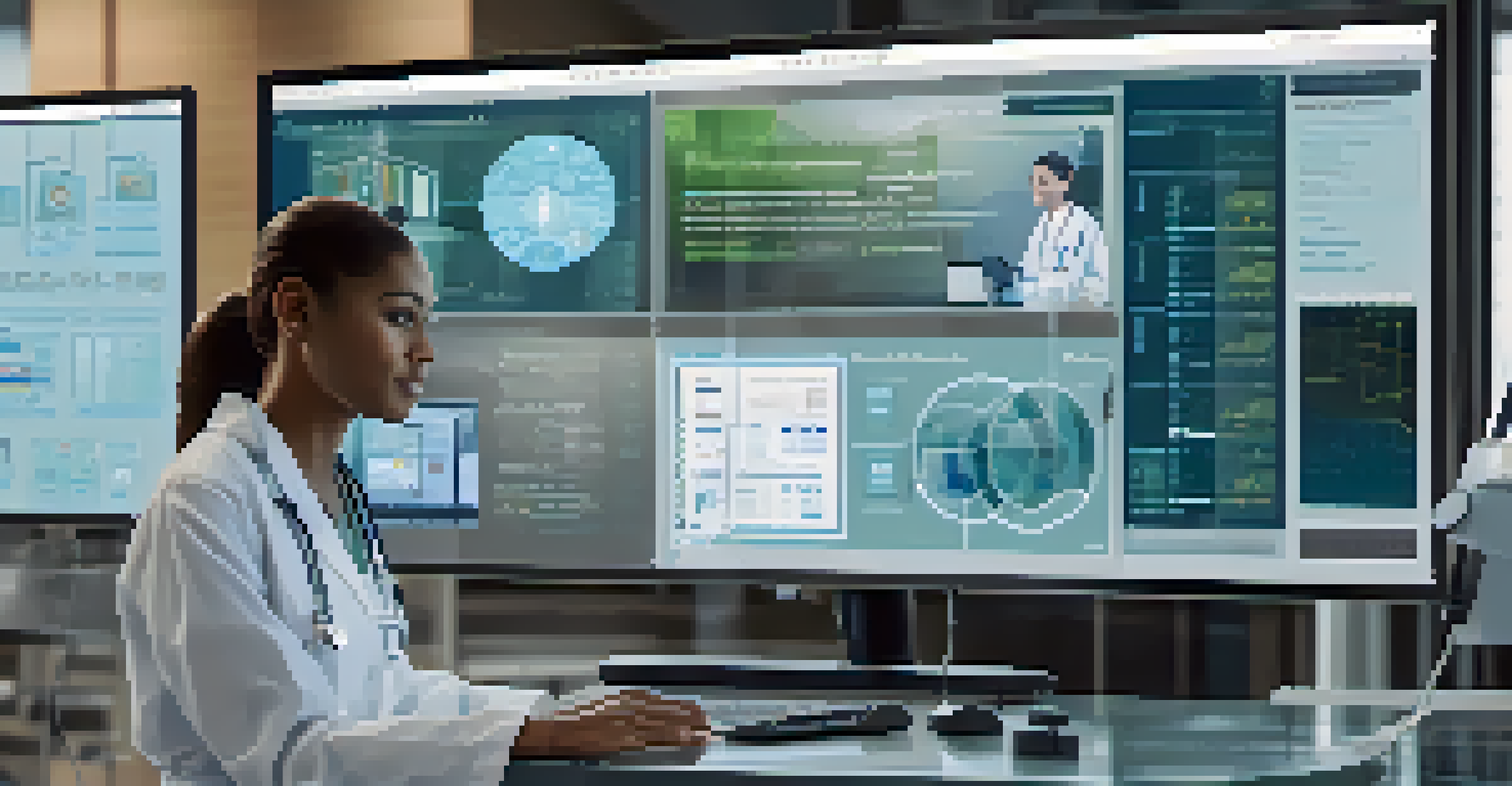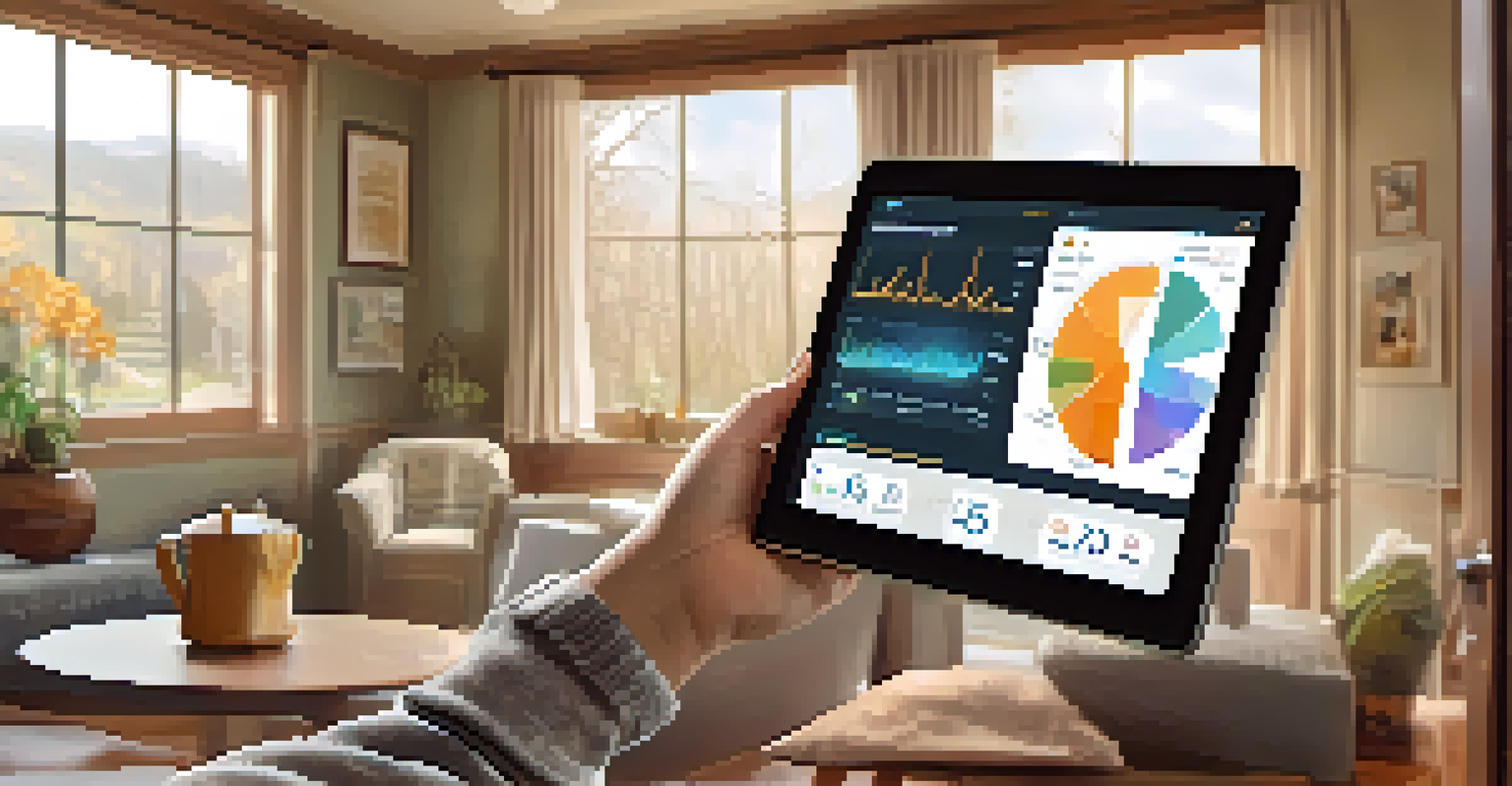Decentralized Applications: A Game Changer for Healthcare

Understanding Decentralized Applications in Healthcare
Decentralized applications, or dApps, are software that run on a blockchain network rather than a centralized server. This means that no single entity controls the application, which enhances security and transparency. In healthcare, dApps can streamline processes and improve patient care by providing a trustworthy framework for managing sensitive data.
The future of healthcare is not in the hands of a few, but in the collective wisdom of many, empowered by technology.
Imagine a hospital where patient records are not stored in a single database that can be hacked. Instead, each record is distributed across a blockchain, making it nearly impossible for hackers to access all information at once. This shift not only enhances security but also gives patients greater control over their own health data.
Furthermore, dApps can facilitate better communication between various stakeholders in the healthcare system. For instance, a doctor can seamlessly access a patient's medical history from multiple sources without needing to rely on a centralized database, ensuring that they have all the information necessary for effective treatment.
Enhanced Data Security and Privacy for Patients
One of the most significant advantages of decentralized applications is their ability to enhance data security. Traditional healthcare systems are often vulnerable to data breaches, which can put sensitive patient information at risk. By using blockchain technology, dApps can encrypt data and make it accessible only to authorized individuals.

Think of it like a vault where only certain keys can unlock specific files. This means that even if a hacker gains access to the network, they would still struggle to access sensitive patient data. Patients can feel more secure knowing that their health information is being handled with the utmost care.
Decentralized Apps Enhance Security
Decentralized applications use blockchain technology to improve patient data security and give individuals more control over their health information.
Moreover, patients can have a say in who accesses their data. With dApps, they can grant permissions to healthcare providers and revoke them at any time, giving them a sense of ownership over their health information. This empowerment fosters trust in the healthcare system, leading to better patient engagement.
Streamlining Processes with Smart Contracts
Smart contracts are self-executing contracts with the terms directly written into code on the blockchain. In healthcare, these contracts can automate various processes, reducing the need for intermediaries and minimizing human error. This can lead to faster, more efficient service delivery.
Data privacy is not an option, it’s a necessity, and with decentralized applications, we can finally put patients in control of their own health information.
For example, when a patient receives treatment, a smart contract can automatically process insurance claims without requiring manual intervention. This not only speeds up the payment process but also reduces administrative costs for healthcare providers. Imagine how quickly a patient could get reimbursed for a doctor’s visit!
Additionally, smart contracts can help ensure compliance with regulations. They can automatically verify that treatments and billing practices adhere to industry standards, reducing the risk of fraud and enhancing accountability in healthcare.
Improving Patient-Centric Care Models
Decentralized applications can shift the focus of healthcare from provider-centric to patient-centric models. By leveraging dApps, patients can access their health records, track their health metrics, and communicate with providers more effectively. This shift encourages patients to take an active role in managing their health.
Consider a scenario where patients can use a dApp to monitor their chronic conditions in real-time. They can easily share this data with healthcare professionals, leading to more personalized treatment plans tailored to their unique needs. This level of engagement can significantly improve health outcomes.
Smart Contracts Automate Processes
Smart contracts streamline healthcare processes by automating tasks like billing and insurance claims, which reduces errors and speeds up service delivery.
Moreover, with the transparency that dApps provide, patients can make informed decisions about their healthcare options. They can compare treatment costs, find the best providers, and even access reviews from other patients, leading to a more empowered healthcare experience.
Facilitating Interoperability Across Systems
Interoperability refers to the ability of different healthcare systems to communicate and exchange data seamlessly. Decentralized applications can break down the silos that often exist in healthcare data, allowing for smoother information sharing between providers, labs, and pharmacies.
Imagine a system where a patient's lab results are instantly available to their primary care physician, specialist, and pharmacist—all in real-time. This connectivity can help eliminate the delays and redundancies that often plague traditional healthcare systems, leading to quicker diagnoses and treatment.
By fostering interoperability through dApps, healthcare providers can collaborate more effectively, leading to better-coordinated care. This is particularly vital for patients with complex health issues who require input from multiple specialists.
Reducing Costs and Increasing Efficiency
Implementing decentralized applications in healthcare can significantly reduce costs associated with infrastructure, data management, and administrative overhead. By eliminating the need for centralized servers and intermediaries, healthcare organizations can allocate resources more efficiently.
For instance, a dApp that automates billing and claims processing can save healthcare providers countless hours and reduce errors in billing. This efficiency not only enhances revenue cycles but can also lead to lower costs for patients, making healthcare more accessible.
Interoperability Improves Care
Decentralized applications facilitate interoperability, allowing seamless data exchange between healthcare systems for better-coordinated patient care.
In the long run, these cost savings can be redirected toward research and development or improving patient services, ultimately leading to a healthier society. The potential for dApps to reshape the financial landscape of healthcare is immense.
Challenges and Considerations in Adoption
Despite the numerous benefits of decentralized applications, some challenges remain in their adoption within healthcare. Concerns about regulatory compliance, the need for standardization, and the technological literacy of users can hinder widespread implementation. It’s essential for healthcare organizations to navigate these hurdles thoughtfully.
For example, ensuring that dApps comply with regulations like HIPAA in the United States is crucial to protect patient privacy. Organizations must work closely with legal experts to develop solutions that meet regulatory requirements while also taking advantage of dApp capabilities.

Additionally, educating healthcare providers and patients about using dApps is vital. Training and support systems must be in place to ensure that users feel comfortable with the technology, paving the way for smoother integration into everyday healthcare practices.